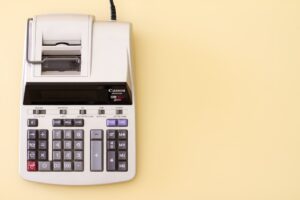The Ultimate Guide to Forex Cards in India: Everything You Need to Know
Foreign exchange has become an integral part of our lives, especially for those who travel abroad frequently or engage in international business transactions. Forex cards have emerged as a convenient and secure way to carry foreign currency while traveling. In this article, we will provide you with a comprehensive guide to forex cards in India, covering everything you need to know.
What is a Forex Card?
A forex card, also known as a travel card, is a prepaid card that allows you to load multiple foreign currencies onto a single card. It is a convenient alternative to carrying cash or traveler’s cheques while traveling abroad. Forex cards are widely accepted at most merchant establishments and ATMs worldwide, making them an ideal choice for international travelers.
How Does a Forex Card Work?
Forex cards work on the principle of preloaded funds. Before your trip, you can load your forex card with the desired amount of foreign currency. The funds are then converted into the respective currency at the prevailing exchange rate. The card can be used to make purchases or withdraw cash in the local currency of the country you are visiting.
Advantages of Forex Cards
1. Convenience: Forex cards are incredibly convenient, as they eliminate the need to carry large amounts of cash or traveler’s cheques. You can simply swipe your card at merchant establishments or withdraw cash from ATMs, just like a regular debit or credit card.
2. Security: Forex cards offer enhanced security compared to cash. In case of loss or theft, most forex card providers offer 24/7 customer support and provide replacement cards or emergency cash, ensuring that your money is protected.
3. Exchange Rate Lock-In: One of the significant advantages of forex cards is the ability to lock in the exchange rate at the time of loading the card. This protects you from fluctuating exchange rates and allows you to budget your expenses more effectively.
4. Wide Acceptance: Forex cards are widely accepted at most merchant establishments, including hotels, restaurants, and shopping malls worldwide. They can also be used to withdraw cash from ATMs, ensuring that you have access to funds wherever you go.
5. Multiple Currencies: Forex cards allow you to load multiple currencies onto a single card. This is particularly beneficial if you are visiting multiple countries during your trip. You can switch between currencies seamlessly without the need for multiple cards.
How to Get a Forex Card in India?
Obtaining a forex card in India is a simple and straightforward process. Here are the steps involved:
1. Choose a Forex Card Provider: Research and compare various forex card providers in India. Look for providers that offer competitive exchange rates, low fees, and excellent customer service.
2. Documentation: Fill out the application form and provide the necessary documents, including a copy of your passport, visa, and air ticket.
3. Load Funds: Decide on the amount and currency you want to load onto your forex card. You can load funds through internet banking, mobile banking, or by visiting the forex card provider’s office.
4. Activation: Once you have loaded funds onto your card, it needs to be activated. This can be done by calling the customer support number provided by the forex card provider or through their website.
5. Usage: Your forex card is now ready to use. You can swipe the card at merchant establishments or withdraw cash from ATMs as per your requirement.
Important Tips for Using Forex Cards
1. Keep Track of Your Balance: It is essential to keep track of your forex card balance to avoid any inconvenience while traveling. Most forex card providers offer online or mobile banking services that allow you to check your balance and transaction history.
2. Notify Your Bank: Before traveling abroad, inform your bank about your travel plans to avoid any security issues. This will prevent your card from being blocked or flagged for suspicious activity.
3. Carry Backup: While forex cards are widely accepted, it is always advisable to carry a small amount of cash or a backup card in case of emergencies or situations where cards may not be accepted.
4. Be Aware of Fees: Different forex card providers charge varying fees for services such as ATM withdrawals, card replacement, or inactivity. Read the terms and conditions carefully to understand the fees associated with your forex card.
Conclusion
Forex cards have revolutionized the way we carry and transact foreign currency while traveling. With their convenience, security, and competitive exchange rates, they have become the preferred choice for frequent travelers. By following the tips mentioned above and understanding the intricacies of forex cards, you can make the most of your international travel experience.






